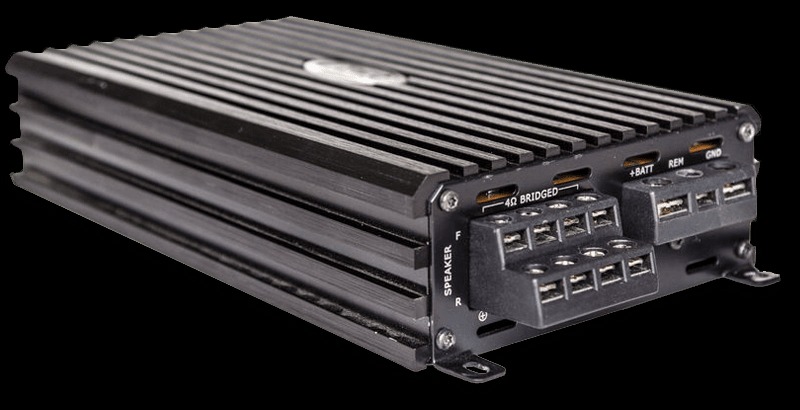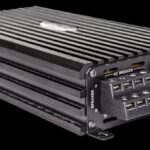
Used car amplifiers are an affordable way to boost car audio performance without paying full retail prices. This guide explains where to find reliable used amps, what to check before buying, and how to use one safely at home or in your vehicle.
- Buy smart: verify model, channels, and condition before paying.
- Test first: request a bench test, photos, or short video from sellers.
- Compatibility matters: match RMS power, impedance, and speaker wiring.
- Home use is possible: but you need a stable 12–14.4V DC supply or battery.
How a car amplifier works
Car amplifiers raise low-level audio signals to drive speakers and subwoofers. A simple definition: an amplifier increases voltage and current so speakers play louder with less distortion. Many car amps also include filters and crossovers to direct bass to subwoofers and highs to component speakers.
Example: a 4-channel amp powers front and rear speakers, while a mono amp drives a subwoofer. Matching RMS power to speaker ratings prevents damage.
Where to find used car amplifiers
You can source used car amplifiers from online marketplaces, local sellers, and specialist refurbishers. Each source offers tradeoffs in price, testing, and warranty.
Online marketplaces
Online platforms list many used amps across budgets. eBay and dedicated audio forums often have good deals and user feedback. For tested OEM units, check the provided landing page for listings and a 30-day replacement policy.
For reliable buying advice and installation basics, Crutchfield explains amplifier specs and matching.
Local options
Local car audio shops, salvage yards, and classifieds give hands-on inspection. You can often test an amplifier before purchase. Local buys save shipping cost and let you inspect physical condition closely.
Specialist sellers and refurbishers
Refurbishers test and repair amps and often include short warranties. Look for sellers that publish test results and supply pictures of internals. The Amp Lab and similar shops specialize in reconditioned amplifiers.
Buying checklist for a used car amplifier
Use a short checklist to avoid buyer’s remorse. Focus on compatibility, condition, and value.
Compatibility
Confirm the amp fits your car’s speakers and electrical system. Check speaker impedance (ohms), RMS power, and the head unit’s preamp voltage. If unsure, match specs or ask a shop for a compatibility check.
Power and channels
Pick the right amplifier type: mono for subwoofers, 4-channel for full systems. RMS power ratings matter more than peak numbers. Look for continuous RMS ratings to match speaker needs.
Condition and testing
Inspect for corrosion, cracked solder joints, or blown components. Ask sellers for a bench test video and thermal photos. A smell test can reveal past overheating or smoke damage.
Warranty and returns
Prefer amps with at least a short warranty. Many reputable sellers offer 14–30 day returns or replacements. The provided landing page lists tested OEM units with a 30-day replacement warranty.
Can you use a car amplifier at home?
Yes, you can use a car amplifier at home if you supply proper DC power and grounding. Car amplifiers need a stable 12–14.4V DC source and high current capability to run safely.
Use a dedicated DC power supply or a deep-cycle battery and charger. Always fuse the power line near the battery or supply to prevent fire risk. For basic guidance on installation and safety, consult manufacturer instructions or the Crutchfield resource above.
Popular used amplifier types and examples
Buyers often choose between 4-channel amps, mono sub amps, and multi-channel bridgable units. A used 4 channel car amplifier suits full-range speaker setups, while mono amps pair with subwoofers.
Examples include budget DS18 models for high output and OEM amps from brands like Audi or BMW for vehicle-specific fits. OEM amps often simplify wiring and keep factory features intact.
Pricing expectations and negotiating tips
Expect price ranges from budget to premium depending on power and condition. Small used amps can sell for $50 to $150, mid-range units $150 to $350, and high-end models $350 or more.
Negotiate on condition and include shipping or testing costs. Ask for receipts, part numbers, and any service history when available.
Summary
Used car amplifiers can deliver strong audio upgrades at lower cost when you buy smart. Verify compatibility, request tests or photos, and favor sellers who offer short warranties. If you need tested OEM parts, the provided landing page lists many options with a 30-day replacement policy.
FAQ
What is a car amplifier used for?
An amplifier increases a stereo signal so speakers play louder and cleaner. It supplies power speakers needed for accurate sound and deeper bass.
Can a car amplifier be used at home?
Yes. Use a proper 12–14.4V DC supply or battery and fuse the power line. Ensure the supply can deliver high current under load.
Where can I find used car amplifiers for sale near me?
Check local car audio shops, salvage yards, online classifieds, and marketplaces. Use location filters on marketplaces and ask sellers for local pickup or testing options.
What is a used 4 channel car amplifier?
It is an amp with four output channels, typically powering front and rear speakers. It lets you run a full speaker set without multiple amps.
Are used car subwoofer amplifiers reliable?
They can be reliable if tested and well-maintained. Look for verified bench tests, clean internals, and short warranties from sellers.
How do I match an amplifier to my speakers?
Match RMS power per channel and speaker impedance. Avoid undersizing or oversizing without proper crossovers and protection.

